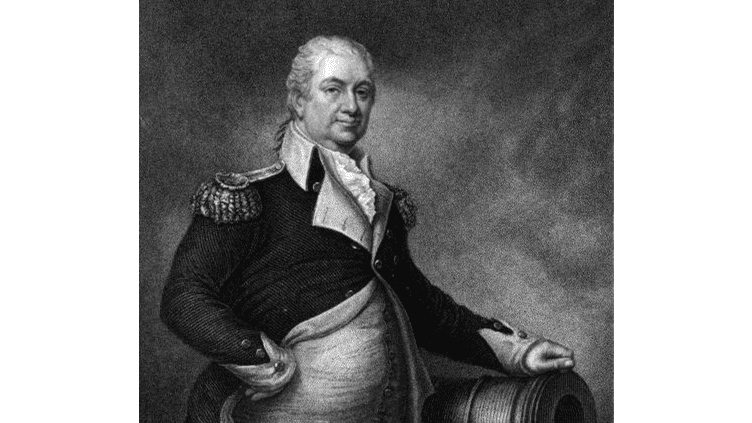When Henry Knox (1750 –1806) was a child, his father left for the West Indies in search of financial stability. His career as shipbuilder and family provider would come to an end with his untimely death. His wife and ten children would be left without a father and would have to toil on their own to make ends meet when his father abandoned the family in the West Indies, including nine-year-old Henry.
Knox dropped out of grammar school to become a clerk for a Boston bookbinding company. The bright young boy consumed as much literary knowledge as possible. He quickly fell in love with the works of history and warfare, notably studying “Sharpe’s Military Guide” and Julius Caesar’s “Commentaries.” His love of military knowledge became so great that he taught himself to read and speak French in order to read military works that had yet to be translated.






